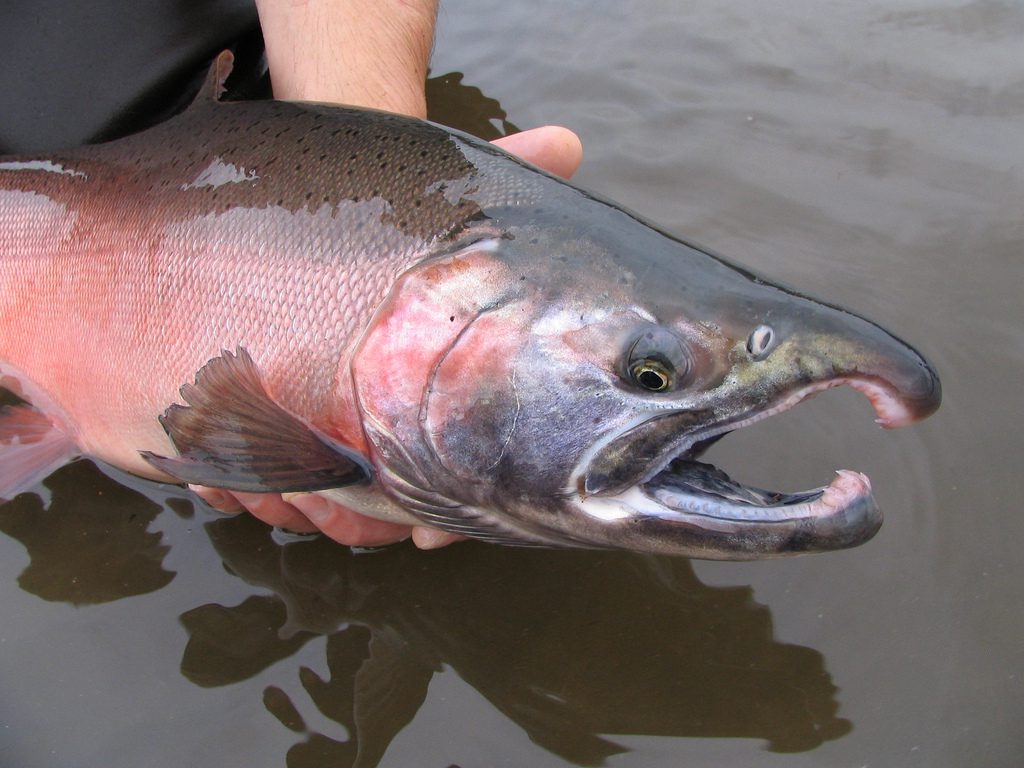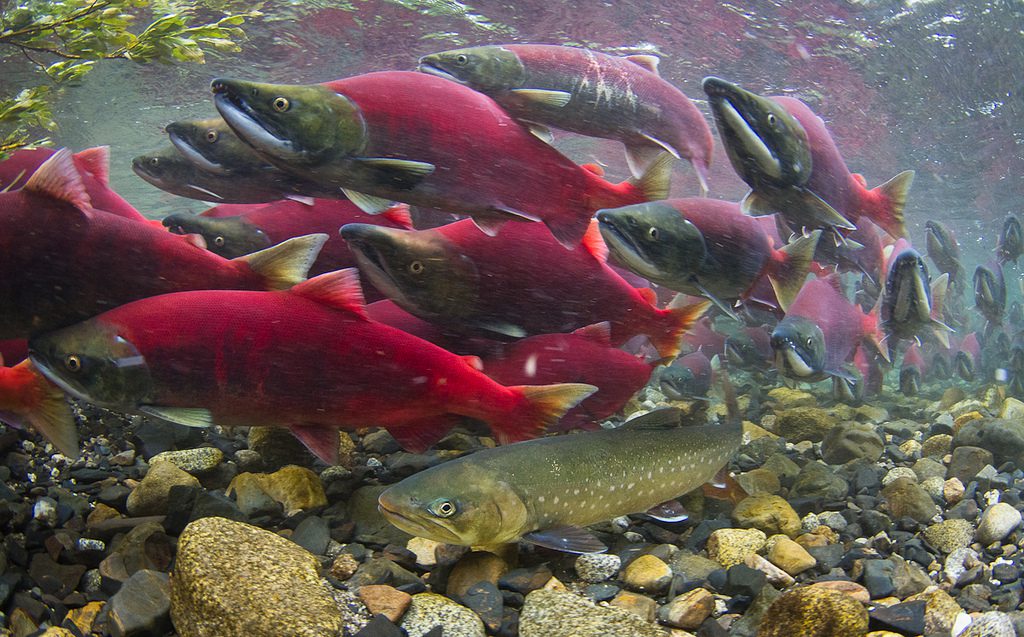Some subsistence users blame gold miners and regulators for failing to take into account the negative impacts mining is having on other resources around Nome.
Yesterday, at Old St. Joe’s, officials from different agencies held a public meeting for community members and miners. Some government representatives used the opportunity for clarification on details.
“We just ask you to stay 300 feet from the nets,” explained Jim Menard with the Alaska Department of Fish and Game to the crowd of more than a hundred.
Other speakers, like Coast Guard Lieutenant Brierley Ostrander, sternly broke down which regulatory policies are voluntary, and which are required.
“Pollution reporting is mandatory. If you spill oil in the water,” Ostrander said from behind the podium, “you’re required to call the Coast Guard National Response Center. Not optional, mandatory.”
But the tone set by officials, including those from Nome was generally one of mutual cooperation.
“Nome and mining kind of go hand in hand,” said City Manager Josie Bahnke. “So, hope that you would just enjoy your time here, be safe, help keep our town clean.”
But the mood shifted during public comments. The vast majority of speakers were subsistence users expressing frustration with gold miners, but especially with state and federal officials, and the Department of Natural Resources in particular.
“The negative impact that you’ve had on the local people—I mean it’s just that, negative,” said Brandon Ahmasuk, Kawerak’s subsistence director. “I am questioning DNR’s permitting process for off-shore mining: local residents are fed up with the treatment that they are being dealt. At times it even seems like non-local miners who are just here for the money and then leave are given preferential treatment, and the residents are stuck with the aftermath.”
Many of the comments came from members of Teller and Brevig Mission who drove more than 70 miles to Nome for the meeting. They offered testimony against a permit under review that would allow a barge-sized vessel to dredge in Grantley Harbor, just east of Port Clarence.
Carolyn Oquilluk spoke for the city and tribe in Teller, and said the community only learned of the permit application two days before, though approval could bring up an operation as early as this season.
“Mining and dredging will only hurt our local communities. We strongly discourage the thought of mining and dredging in the Port Clarence, Grantley Harbor, and Tuksuk channel,” Oquilluk said to the crowd.
But not everyone agreed with the condemnation, or with the idea that traditional values should take priority over mining. One speaker, a young man who didn’t give his name, spoke excitedly about what Nome’s gold sector brings to the community.
“I mean right now most of the miners are also living off the land. Ok? And if you want to help the further generations, how can we help them? They gotta understand the time right now. How can you stop mining? How can you say people gotta stop mining? No! No, this is not acceptable.”
The meeting was led by Scott Pexton, the chief of mining for DNR, who wrapped up public comments to give attendees time to speak one-on-one with officials. He clarified that while DNR and the Department of Environmental Conservation are reviewing a permit for the waters near Brevig Mission and Teller, it has complied with statutes on filing public notice. DNR uses an online portal for submitting public comments, which are looked at as permit applications are reviewed.
You can find DNR’s resource and permitting guide for off-shore dredging here.







